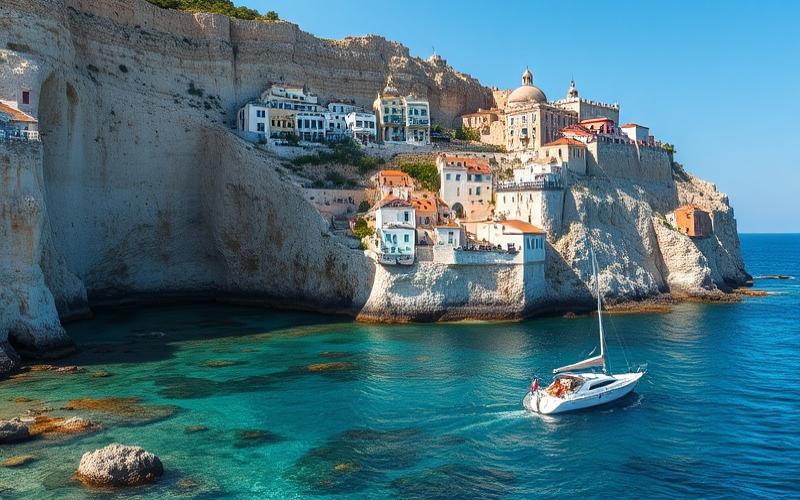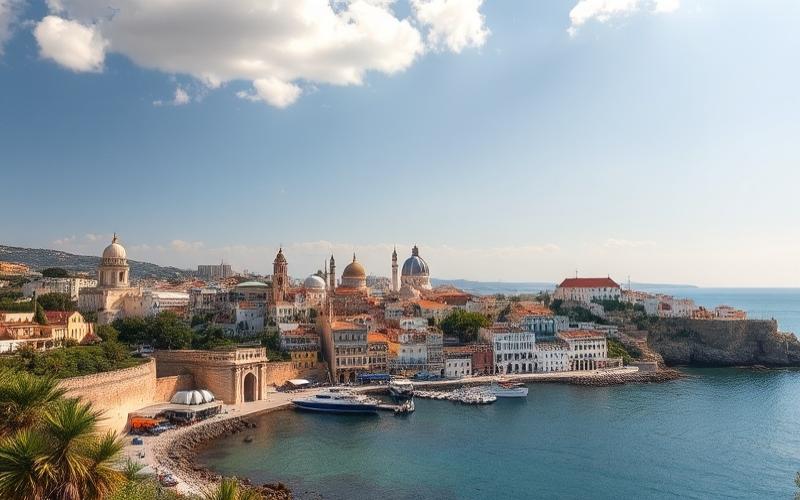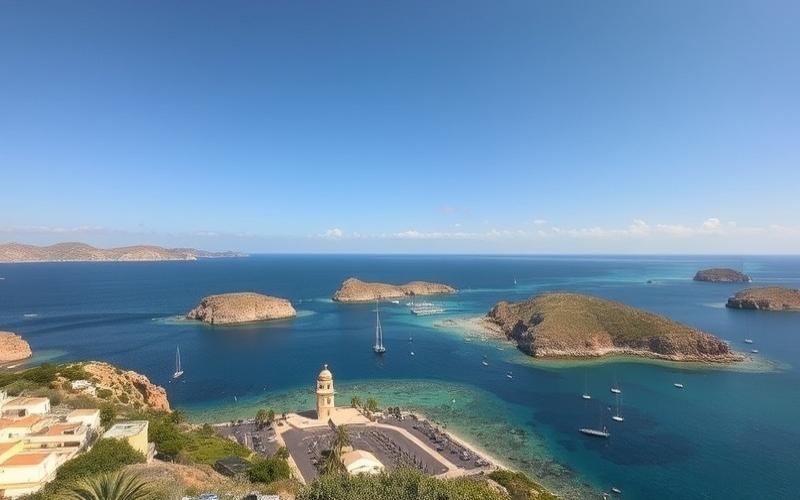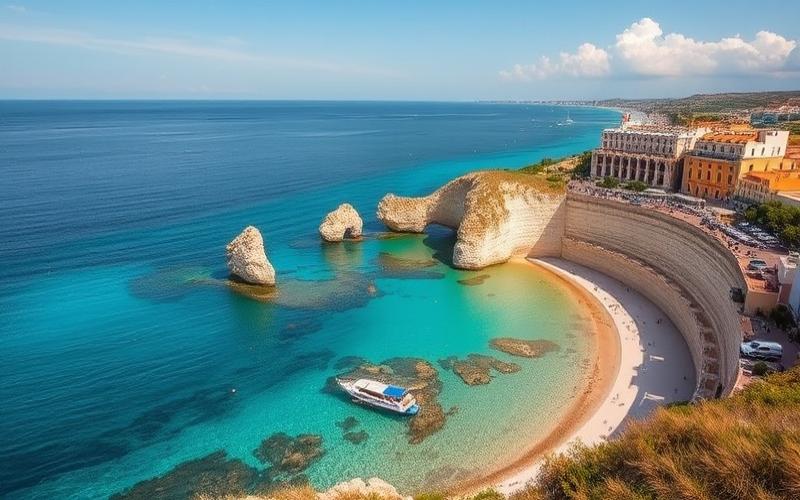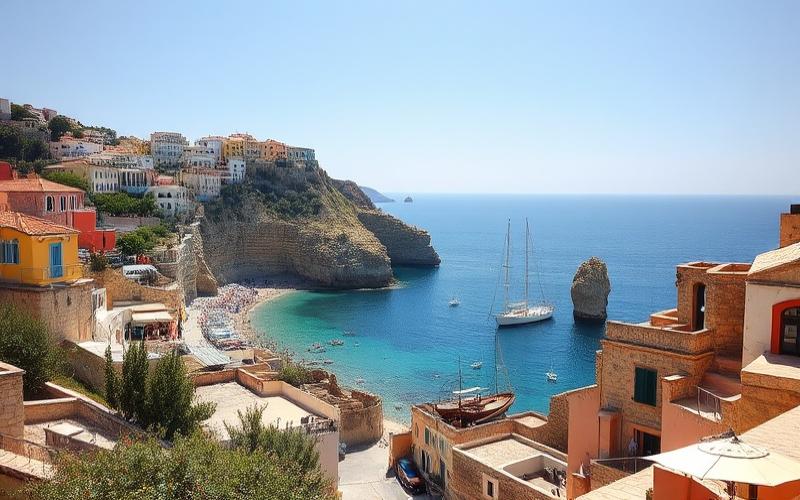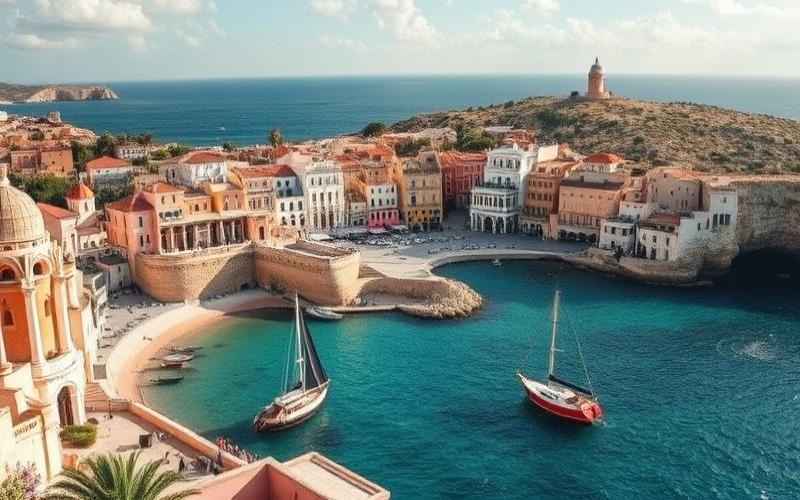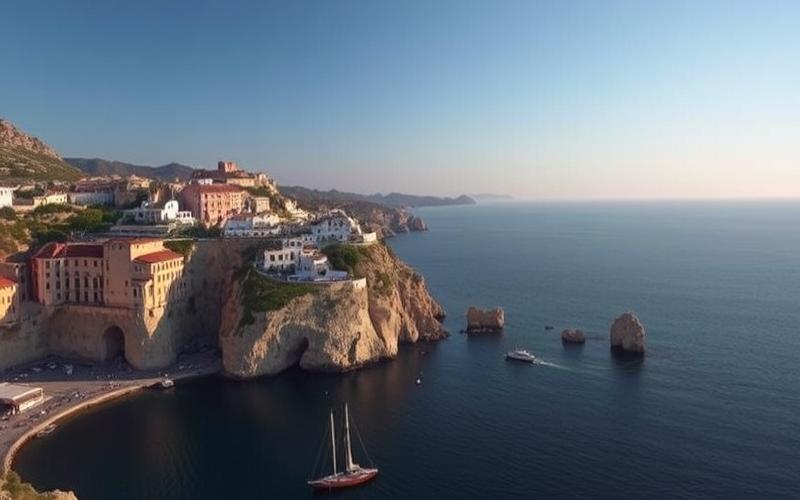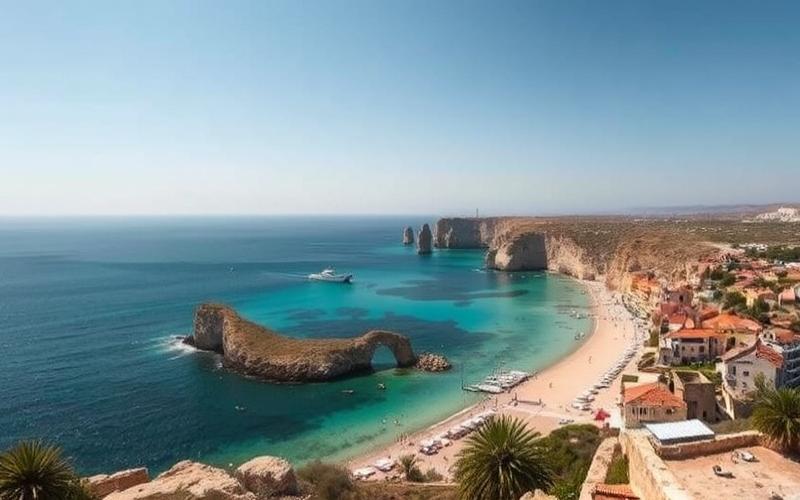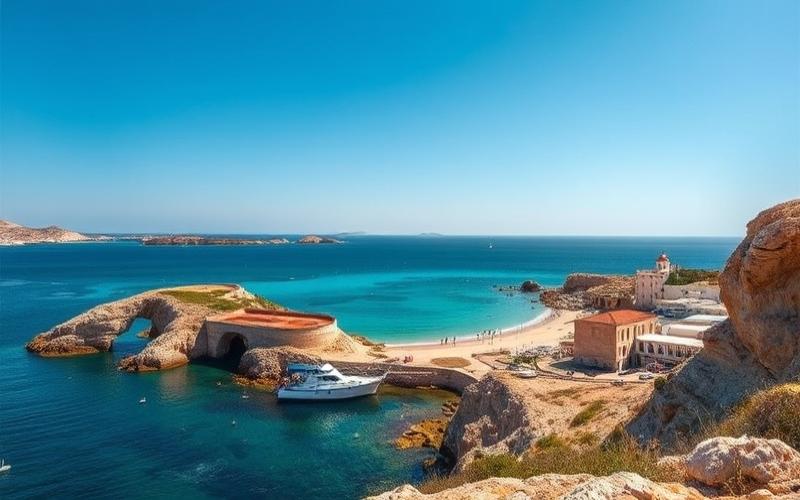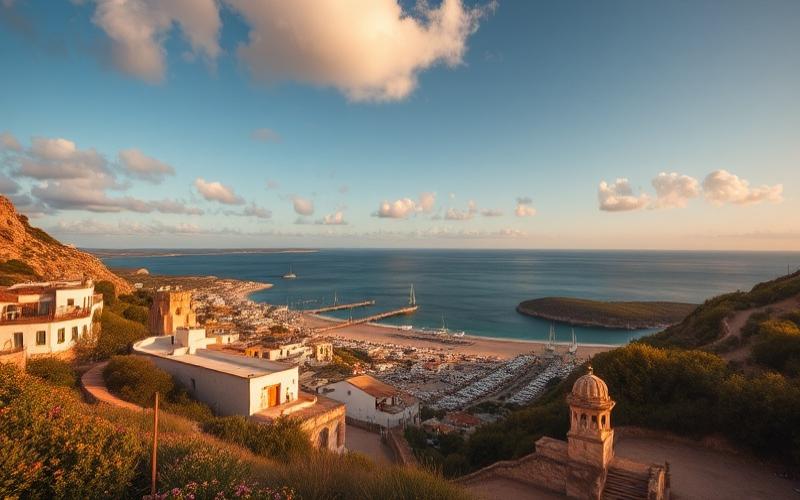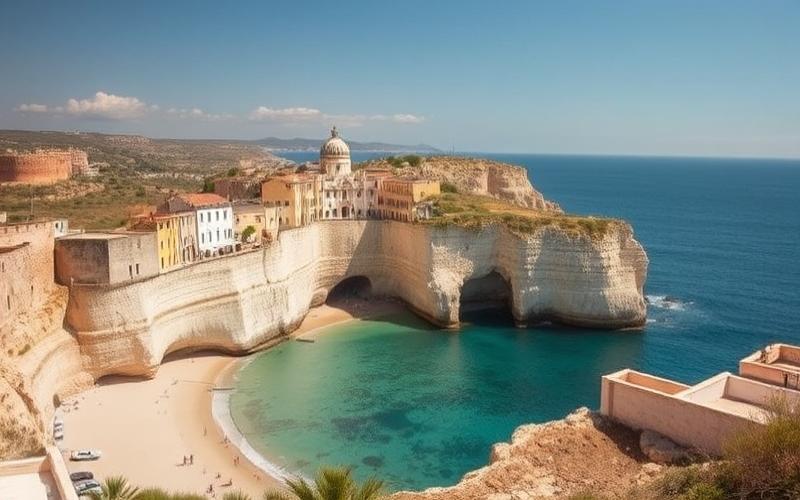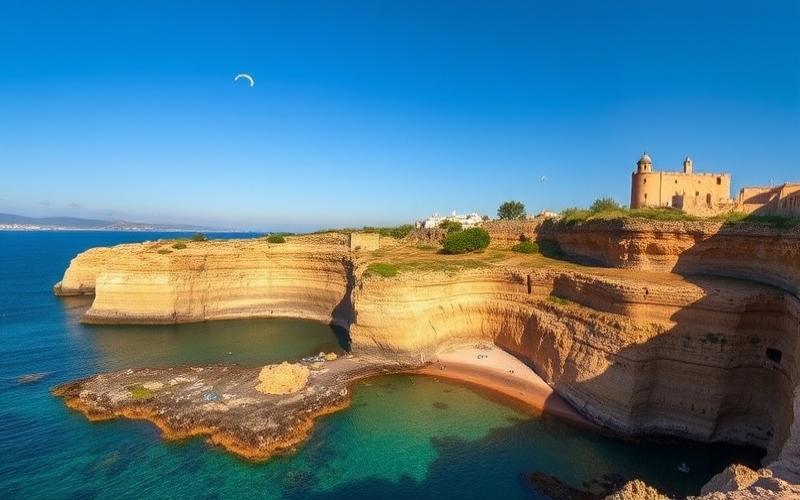
 Published on and written by Cyril Jarnias
Published on and written by Cyril Jarnias
Malta, a Mediterranean jewel at the heart of the European Union, is attracting more and more foreign investors thanks to its dynamic economy and favorable regulatory framework. Whether you’re considering purchasing property for personal use or as a rental investment, it’s crucial to understand the nuances of the Maltese real estate market. Let’s dive into the details of foreign property regulations in Malta, a country that skillfully blends tradition and modernity.
A Warm Welcome for Foreign Investors
Unlike some countries that impose strict restrictions on foreign buyers, Malta adopts an open and welcoming approach. The Maltese government recognizes the importance of foreign investment in boosting the local economy and has established a favorable legal framework.
European Union nationals enjoy the same rights as Maltese citizens when it comes to property acquisition. For non-EU nationals, although some additional restrictions apply, purchasing properties remains entirely possible and even encouraged in certain designated areas.
This open-door policy is part of a broader strategy to position Malta as an international business hub. The island offers not only pleasant weather and an enviable Mediterranean lifestyle but also an environment conducive to investment and entrepreneurship.
Good to Know:
Foreign investors, whether EU or non-EU, can acquire real estate in Malta with relatively few restrictions, making it an attractive destination for real estate investment in Europe.
Although Malta is generally welcoming toward foreign investors, there are some legal nuances to be aware of:
Special Designated Areas (SDA)
For non-EU nationals, property purchases are subject to certain restrictions. However, the Maltese government has designated Special Designated Areas (SDA) where these restrictions do not apply. These areas, often located in prime locations, offer complete purchasing freedom to foreign investors.
SDAs include luxury developments such as Portomaso in St. Julian’s, Tigne Point in Sliema, and Pendergardens in St. Julian’s. In these areas, foreigners can purchase as many properties as they wish, without limitation.
Acquiring Properties Outside SDAs
Outside SDAs, non-EU nationals can generally purchase one property for personal use. This property must be their primary residence in Malta. To acquire additional properties or for investment purposes, special government authorization is required.
Acquisition of Immovable Property Permit (AIP)
Non-EU nationals who wish to purchase property outside SDAs must obtain an Acquisition of Immovable Property Permit (AIP). This permit is issued by the Ministry of Finance and ensures that the purchase complies with current regulations.
Good to Know:
Special Designated Areas (SDA) offer maximum flexibility to non-EU investors, while purchases outside SDAs generally require an Acquisition of Immovable Property Permit (AIP) for non-EU nationals.
The Approval Journey: Streamlining the Process
The approval process for purchasing property in Malta as a foreigner is generally smooth, but it involves several important steps:
1. Property Status Verification
First and foremost, it’s crucial to verify whether the property you wish to acquire is located in a Special Designated Area (SDA) or not. This information will determine the subsequent process.
2. AIP Application (if necessary)
If you are a non-EU national and the property is not in an SDA, you will need to submit an AIP application. The process involves:
- Completing the AIP application form
- Providing a copy of your passport
- Presenting proof of sufficient funds for the purchase
- Paying the application fee (currently approximately €233)
The processing time is generally 6 to 8 weeks.
3. Due Diligence and Preliminary Contract
Once the AIP is obtained (or if you don’t need one), you can proceed with property due diligence. This typically involves:
- Title deed verification
- Property inspection
- Term negotiation
A preliminary contract (konvenju) is then signed, committing both parties to the transaction.
4. Purchase Finalization
The final step involves signing the final deed before a notary. At this stage, the balance of the purchase price is paid, and the property is officially transferred to your name.
The notary’s role is crucial in the Maltese purchasing process. They ensure all legal requirements are met and that the property transfer is properly registered.
Good to Know:
The approval process for purchasing property in Malta as a foreigner can take an average of 2 to 3 months, including obtaining the AIP if necessary. It’s recommended to work with an experienced notary to facilitate the process.
Rights and Responsibilities: What It Means to Be a Property Owner in Malta
Becoming a property owner in Malta comes with a set of rights and obligations that are essential to understand:
Owner Rights
1. Full and Complete Ownership Rights
Once the purchase is finalized, you enjoy complete ownership rights over your property. This includes the right to use it, rent it, sell it, or even bequeath it according to your wishes.
2. Legal Protection
The Maltese legal system offers strong protection of property rights. In case of disputes, you have access to an impartial and effective judicial system.
3. Rental Rights
You have the right to rent your property, whether for short-term (like Airbnb) or long-term rentals. However, make sure to comply with local rental regulations.
Owner Obligations
1. Tax Payments
- Capital gains tax upon sale (if applicable)
- Annual property tax (if applicable)
- Income tax on rental earnings (if the property is rented)
2. Property Maintenance
You are responsible for maintaining your property, including necessary repairs and compliance with local safety standards.
3. Compliance with Local Regulations
It’s crucial to comply with local laws and regulations, particularly regarding urban planning and environment.
4. Tax Declarations
If you generate rental income in Malta, you must declare it and pay the corresponding taxes. The tax rate on rental income is currently 15% for non-residents.
Good to Know:
Foreign property owners in Malta benefit from strong property rights but must be aware of their tax and legal obligations. It’s recommended to consult with a local tax expert to optimize your situation.
Expert Tips for Successful Investment in Malta
To maximize your real estate investment in Malta, here are some expert tips:
1. Strategically Choose Your Location
Malta offers diverse investment options, each with its advantages:
- Valletta and Sliema for high rental potential
- St. Julian’s for a blend of lifestyle and investment
- Gozo for more affordable properties and a tranquil lifestyle
Analyze your investment goals and choose accordingly.
2. Understand the Local Market
The Maltese real estate market has its particularities. For example, prices have increased significantly in recent years, with an average annual increase of 5-7%. Familiarize yourself with current trends and future projections.
3. Explore Tax Opportunities
Malta offers interesting tax benefits for foreign investors. For example, there is no capital gains tax after holding a property for 3 years. Additionally, the country has concluded tax treaties with many countries to avoid double taxation.
4. Consider the Investment Residence Program
If you’re considering a more permanent presence in Malta, the Malta Permanent Residence Programme (MPRP) might be interesting. It offers a residence permit in exchange for a significant real estate investment (generally around €300,000 to €350,000 depending on location).
5. Work with Local Professionals
Engage an experienced Maltese lawyer and a reputable real estate agent. Their knowledge of the local market and legal procedures is invaluable.
6. Plan for the Long Term
Consider your investment in Malta as a long-term strategy. The Maltese real estate market has shown stable growth, but like any investment, it can fluctuate in the short term.
Good to Know:
A successful real estate investment in Malta requires a thorough understanding of the local market, smart tax planning, and a long-term vision. Consulting with local experts is crucial for navigating the subtleties of the Maltese market.
Conclusion: Malta, a Promising Investment Destination
Investing in Maltese real estate offers a unique opportunity to combine an enviable Mediterranean lifestyle with solid investment potential. With its investor-friendly regulations, dynamic real estate market, and tax benefits, Malta positions itself as a destination of choice for savvy investors.
However, as with any international investment, it’s crucial to proceed with due diligence, fully understand the legal and tax framework, and surround yourself with competent professionals. By following these tips and staying informed about market developments, you’ll be well positioned to make the most of your real estate investment in Malta.
Disclaimer: The information provided on this website is for informational purposes only and does not constitute financial, legal, or professional advice. We encourage you to consult qualified experts before making any investment, real estate, or expatriation decisions. Although we strive to maintain up-to-date and accurate information, we do not guarantee the completeness, accuracy, or timeliness of the proposed content. As investment and expatriation involve risks, we disclaim any liability for potential losses or damages arising from the use of this site. Your use of this site confirms your acceptance of these terms and your understanding of the associated risks.

